

BIRDS
CORVIDS
The Crow family, collectively know as 'Corvids', are stout-billed perching birds known for their high intellect. Corvids can solve problems, recognise faces and use tools. There are eight British species; Carrion crows, Jackdaws, Magpies and Jays are the four usually seen in Hainault Forest.
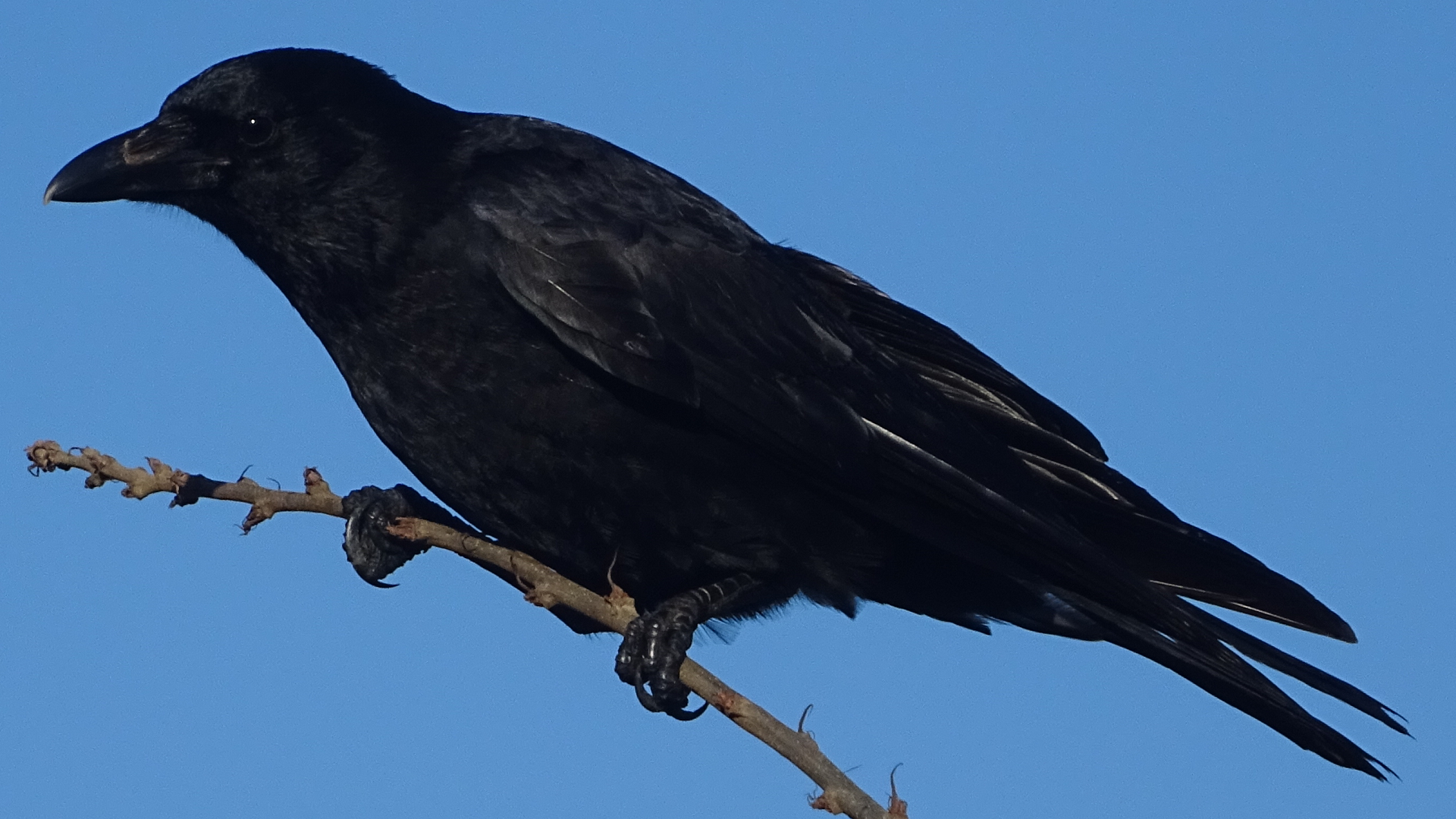
Slide title
Carrion Crow Corvus corone
©Raymond Small TQ4792 18/01/2024
Button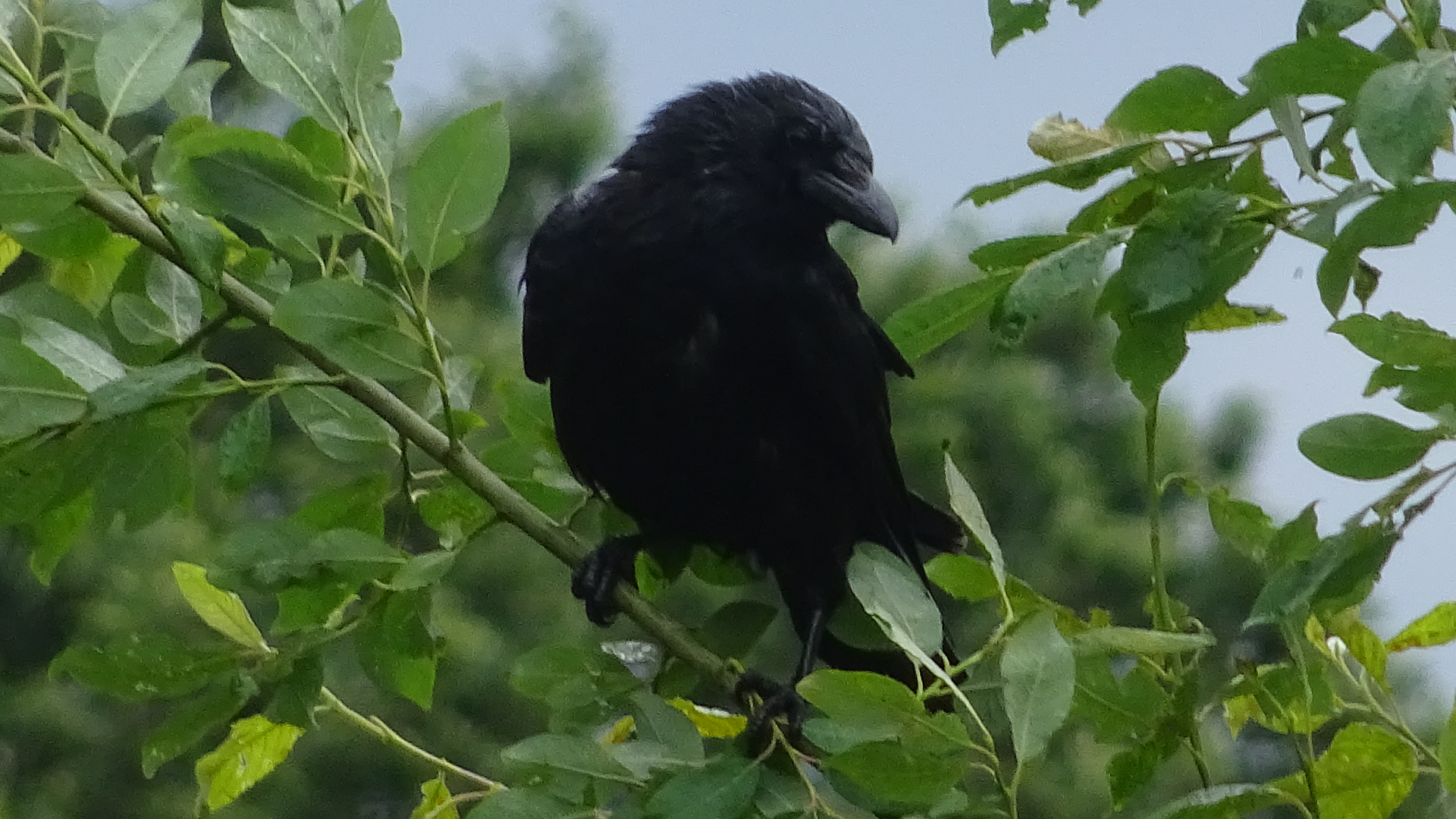
Slide title
Carrion Crow Corvus corone
©Raymond Small TQ4792 11/06/2024
Button
Slide title
Carrion Crow Corvus corone
©Michael Trump TQ4792 06/03/2018
Button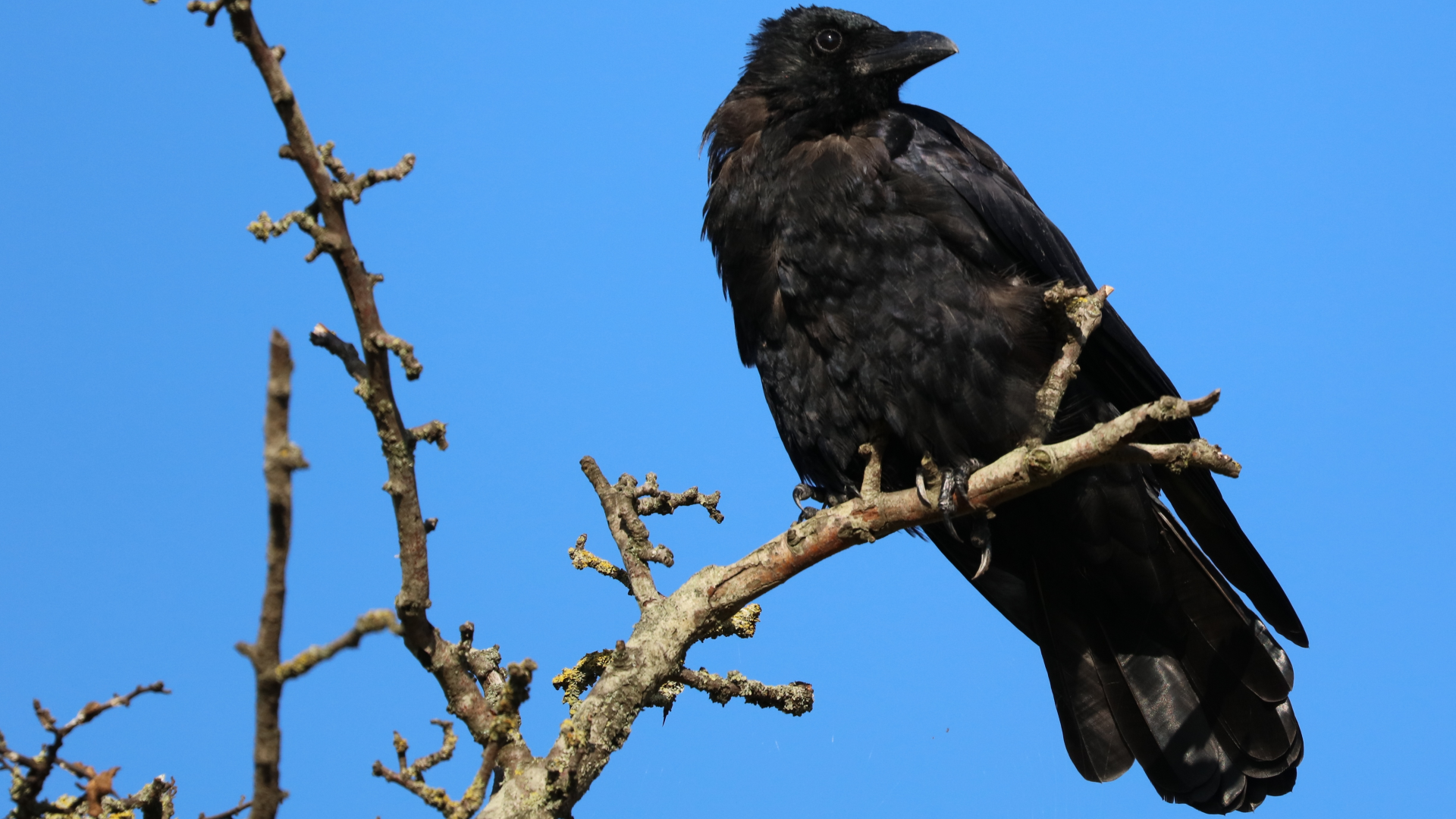
Slide title
Carrion Crow Corvus corone
©Michael Trump TQ4792 02/10/2024
Button
Slide title
Carrion Crow Corvus corone
©Michael Trump TQ4792 20/12/2022
Button
The Crow is a big heavy bird with glossy black plumage and a large, dulled, black beak. Both sexes and juveniles are similar in appearance. They are very intelligent, usually wary of humans but it is possible to gain their trust. They eat a variety of foods and are especially fond of unsalted red peanuts. They fly with slow wing beats. Corvids are sometimes blamed for the decline in garden bird numbers because they sometimes invade nests, however they often chase off predator type birds that might cause more damage. Crows have also been seen chasing foxes away in the scrub areas of Hainault Forest.
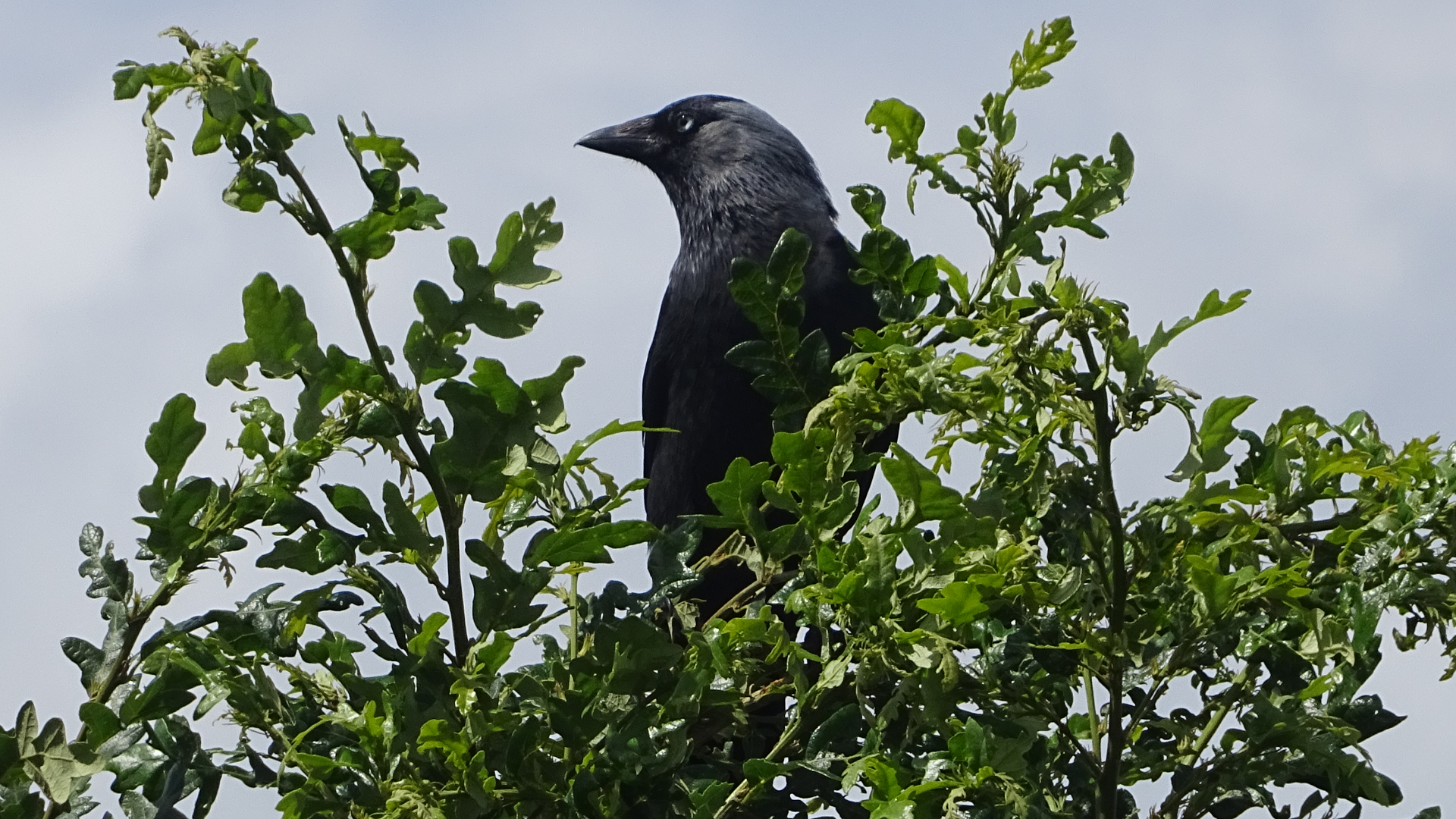
Slide title
Jackdaw Coloeus monedula
©Raymond Small TQ4792 11/06/2024
Button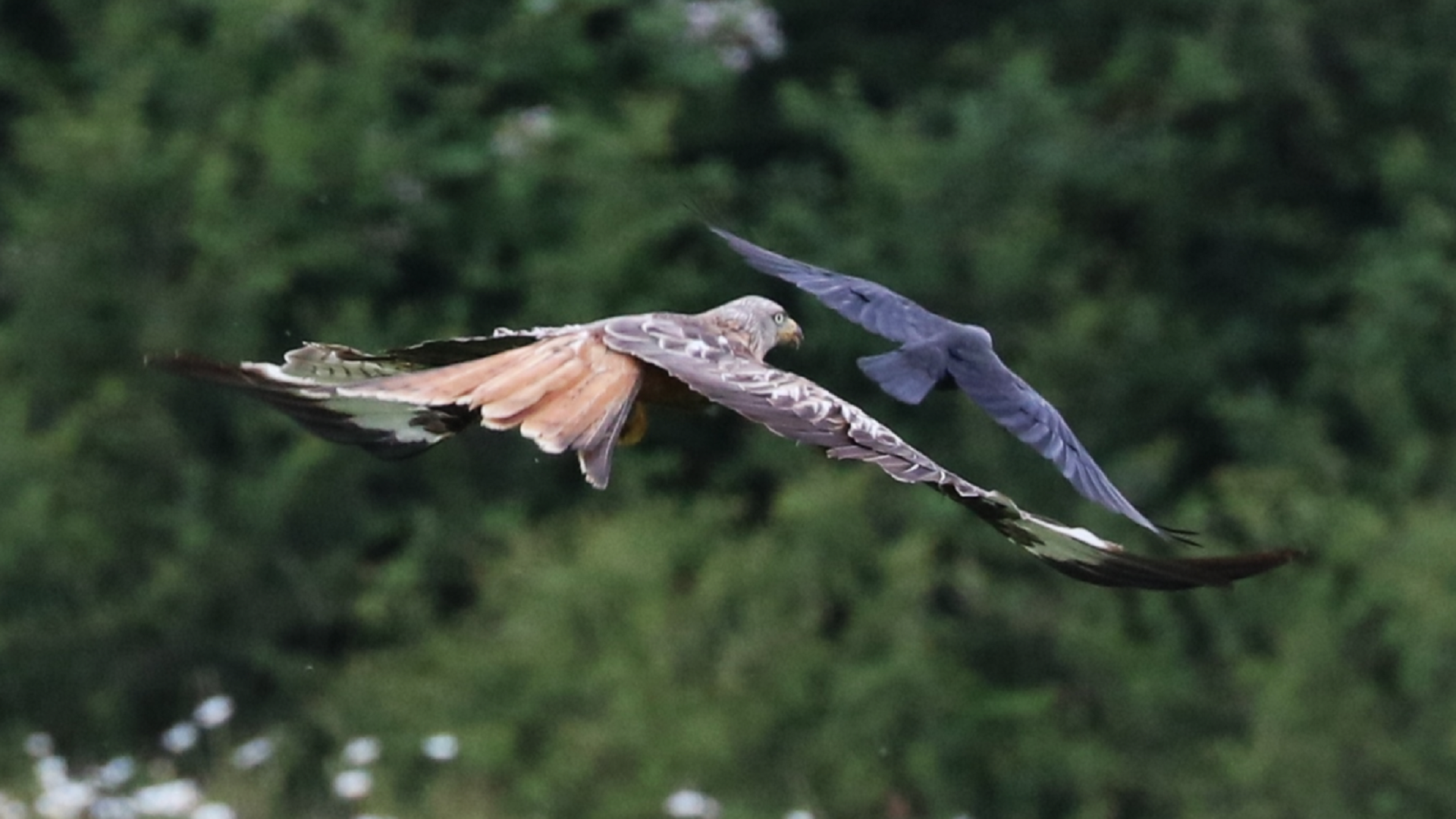
Slide title
Jackdaw Coloeus monedula
©Michael Trump TQ4792 19/06/2024
Button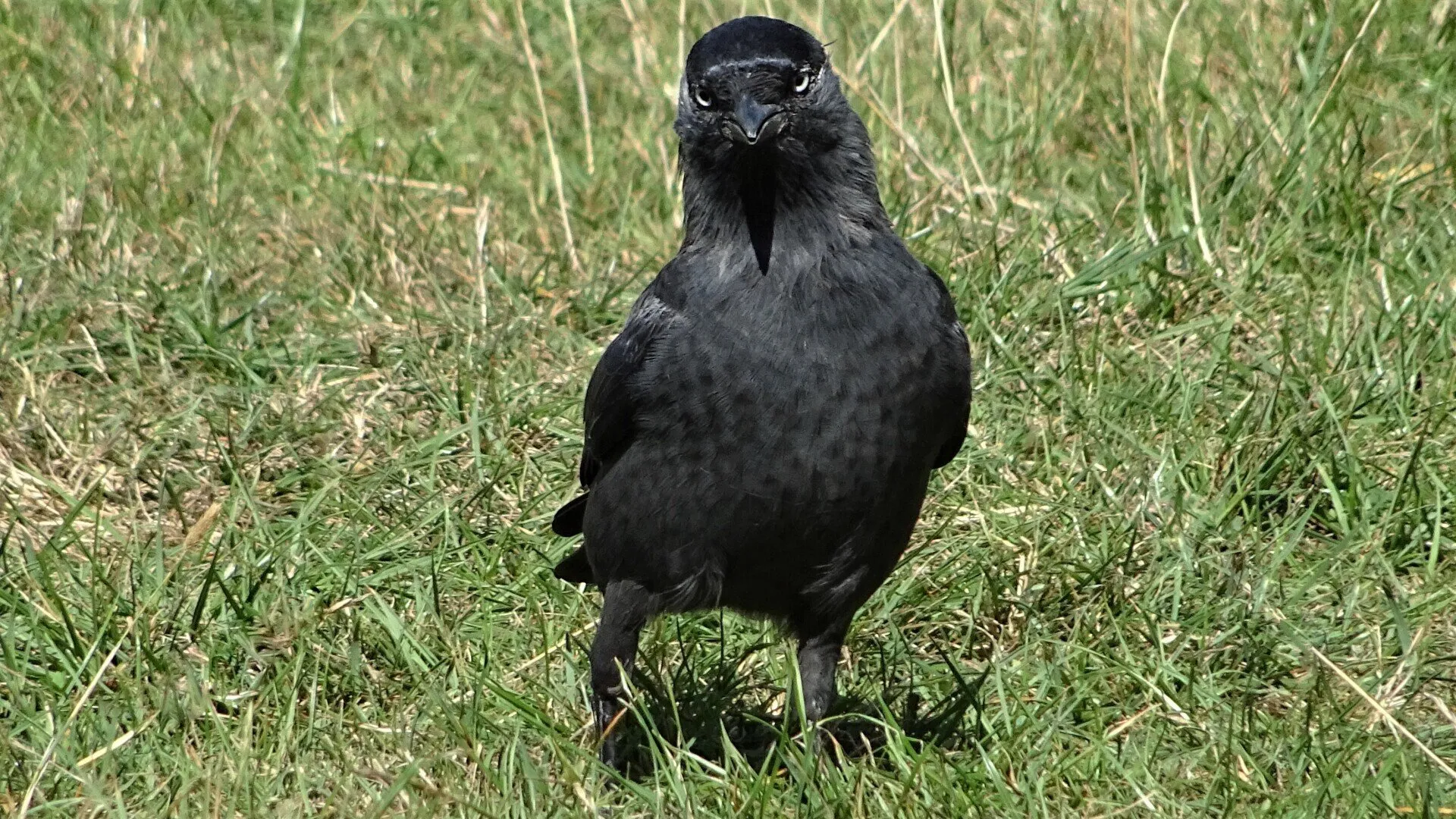
Slide title
Jackdaw Coloeus monedula
©Raymond Small TQ4792 13/09/2018
Button
Slide title
Jackdaw Coloeus monedula
©Mike Rumble TQ4792 17/07/2023
Button
Slide title
Jackdaw Coloeus monedula
©Raymond Small 07/06/2023 TQ4792
Button
Slide title
Jackdaw Coloeus monedula
©Michael Trump TQ4792 08/09/2022
Button
Jackdaws have a distinctive silvery sheen to the back of the head and conspicuous pale eyes. They may be the smallest British crows but they are still brave enough to chase off much larger birds of prey that enter their territory.
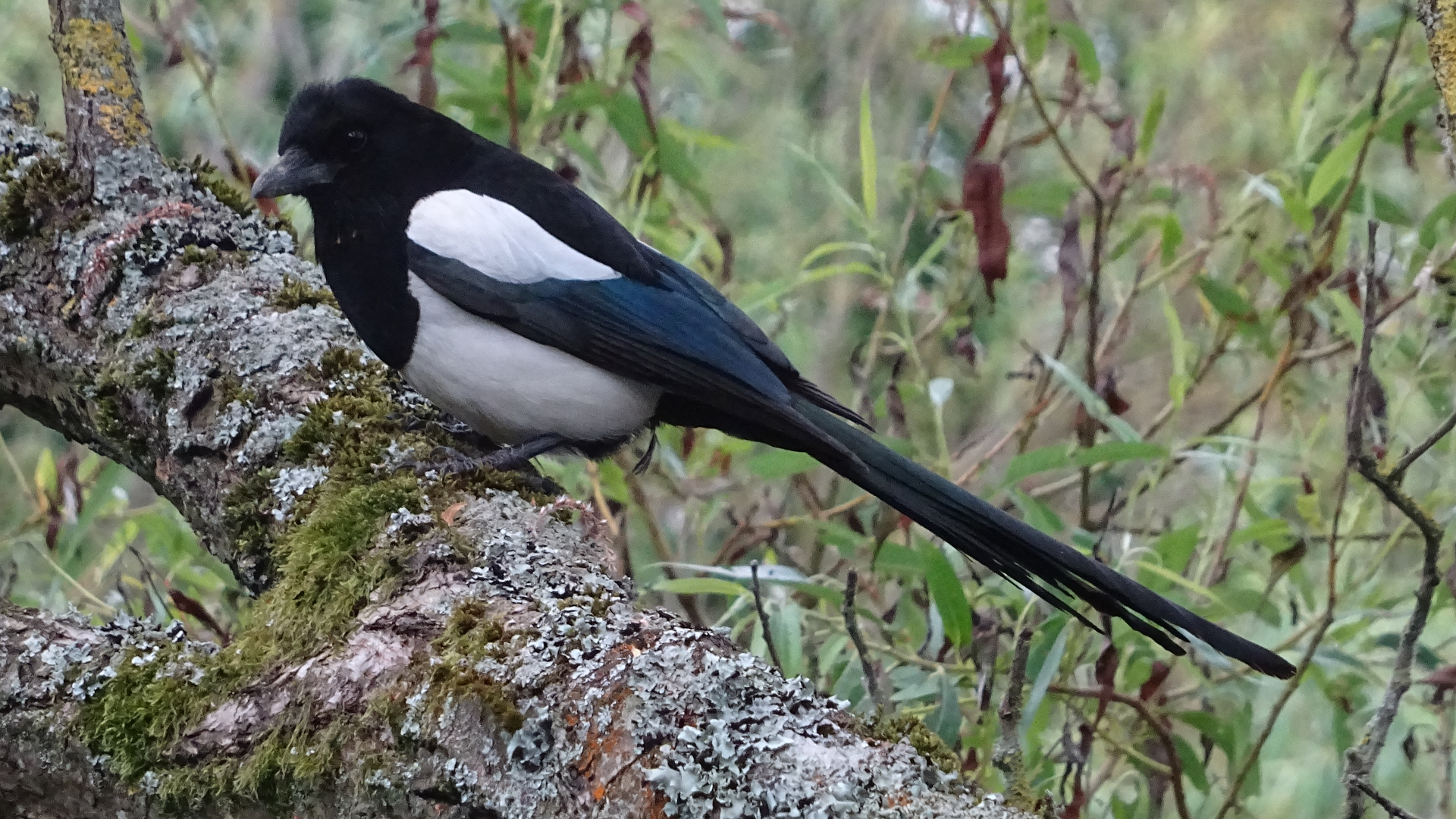
Slide title
Magpie Pica pica
©Raymond Small TQ4792 12/06/2024
Button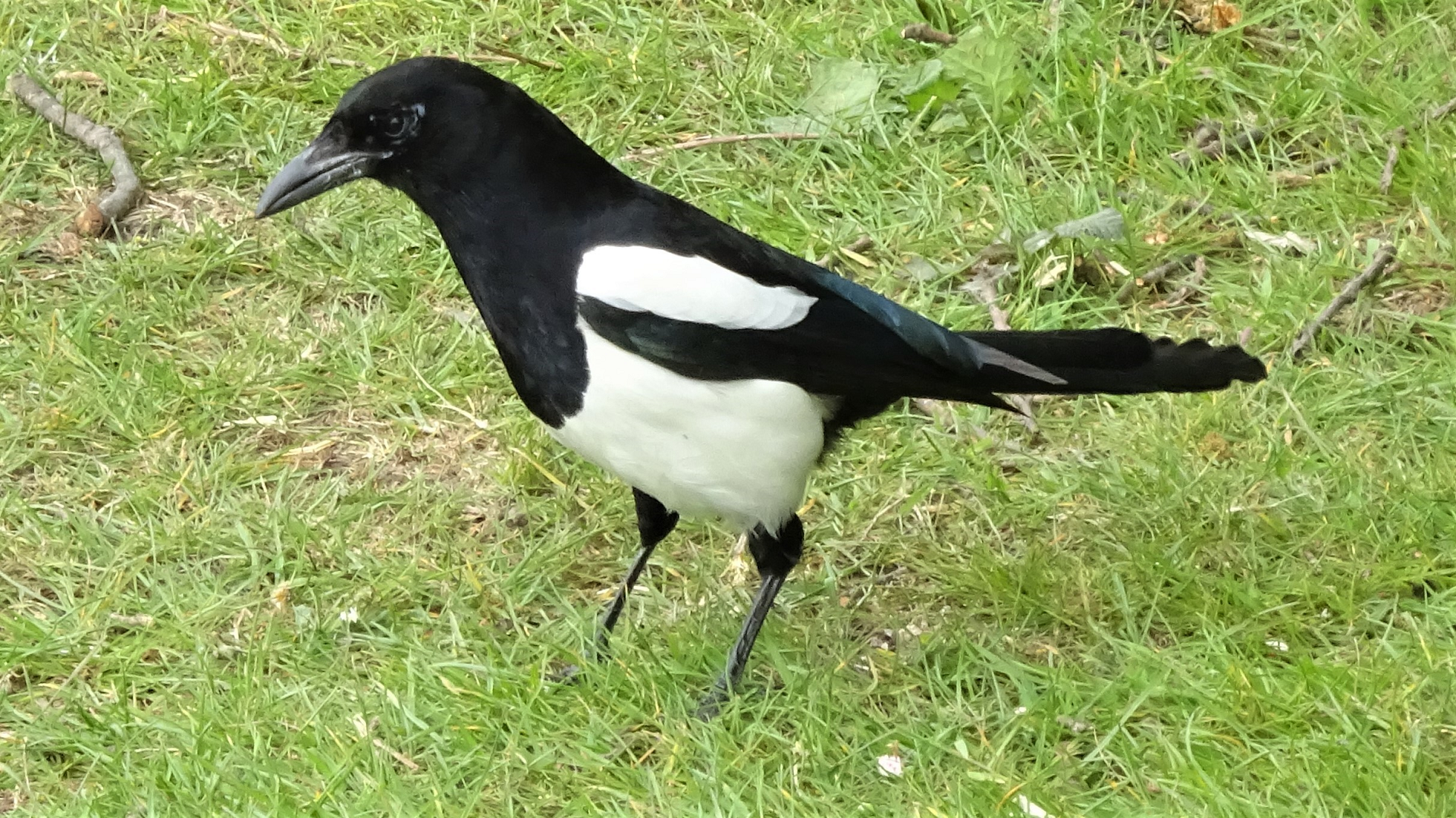
Slide title
Magpie Pica pica
©Raymond Small TQ4792 08/05/2017
Button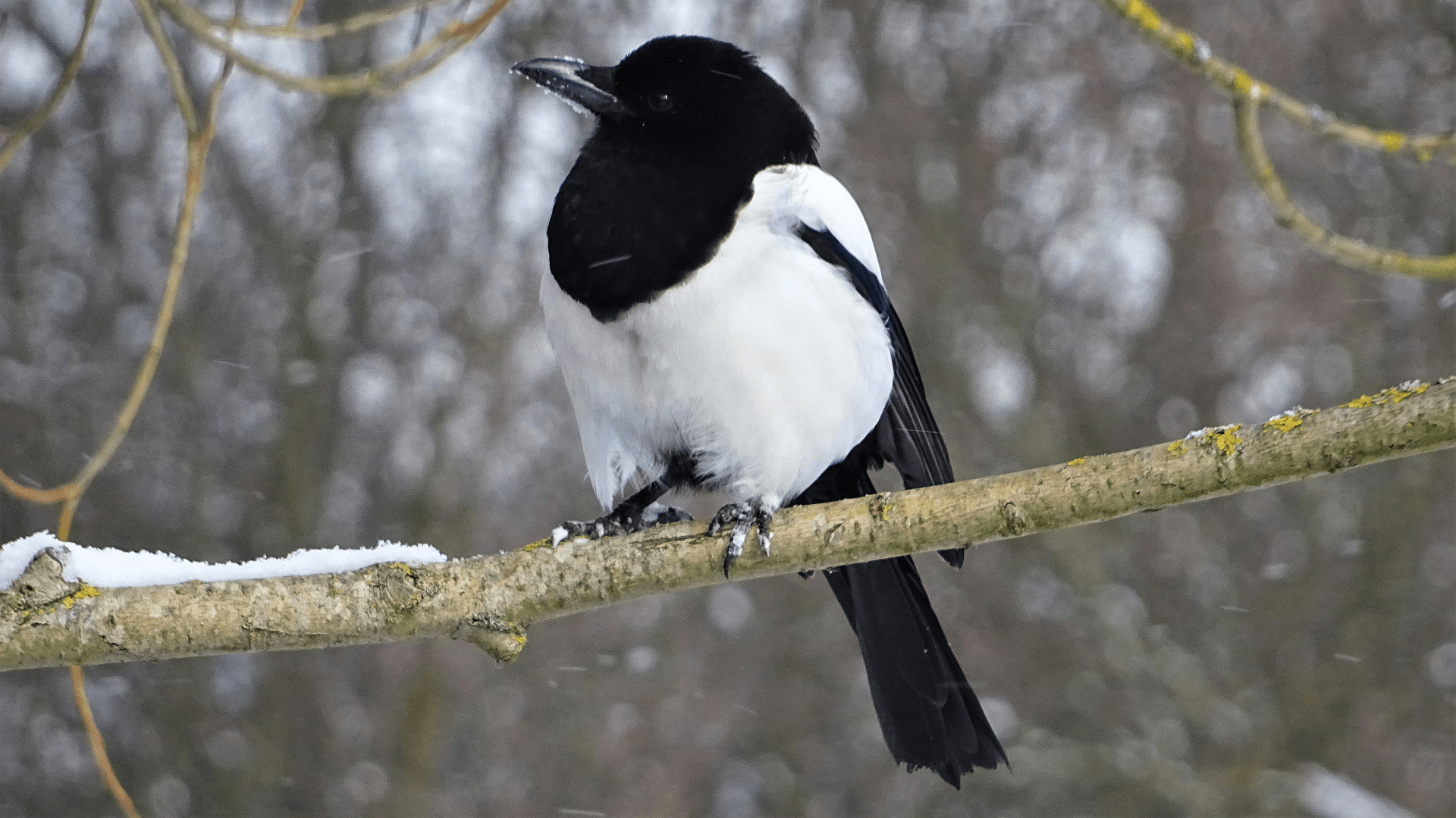
Slide title
Magpie Pica pica
©Raymond Small TQ4792 28/02/2018
Button
Slide title
Magpie Pica pica
©Michael Trump TQ4792 19/07/2019
Button
Slide title
Magpie Pica pica
©Raymond Small TQ4792 08/10/2018
Button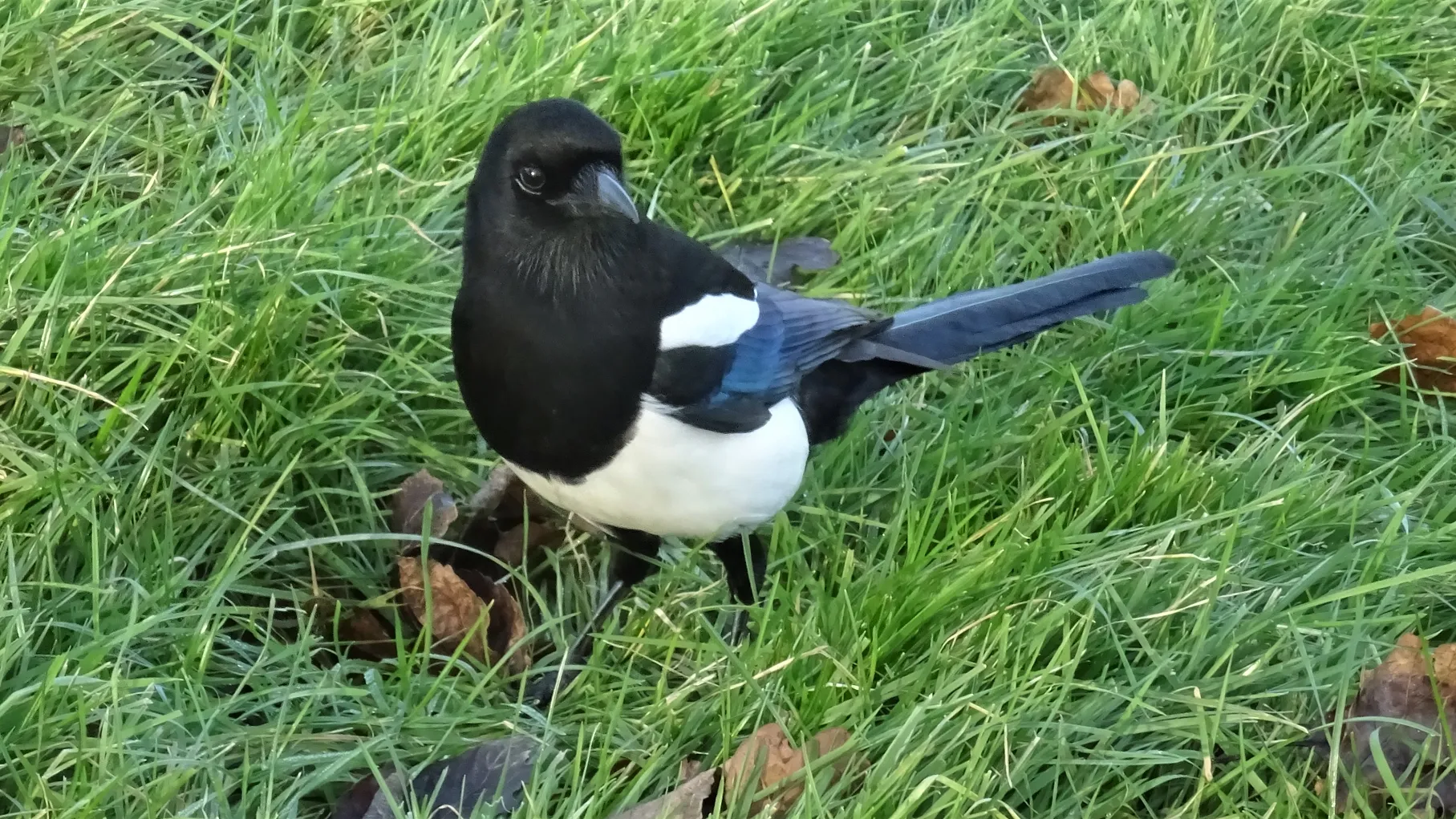
Slide title
Magpie Pica pica
©Raymond Small TQ4792 30/01/2023
Button
Slide title
Magpie Pica pica
©Raymond Small TQ4792 04/06/2022
Button
Magpies were rarely seen in Hainault before the 1960s, but are now well established and regularly heard chattering noisily in the treetops. The black and white feathers of the Magpie have a blueish iridescent sheen when viewed close up and the tails may appear greenish.
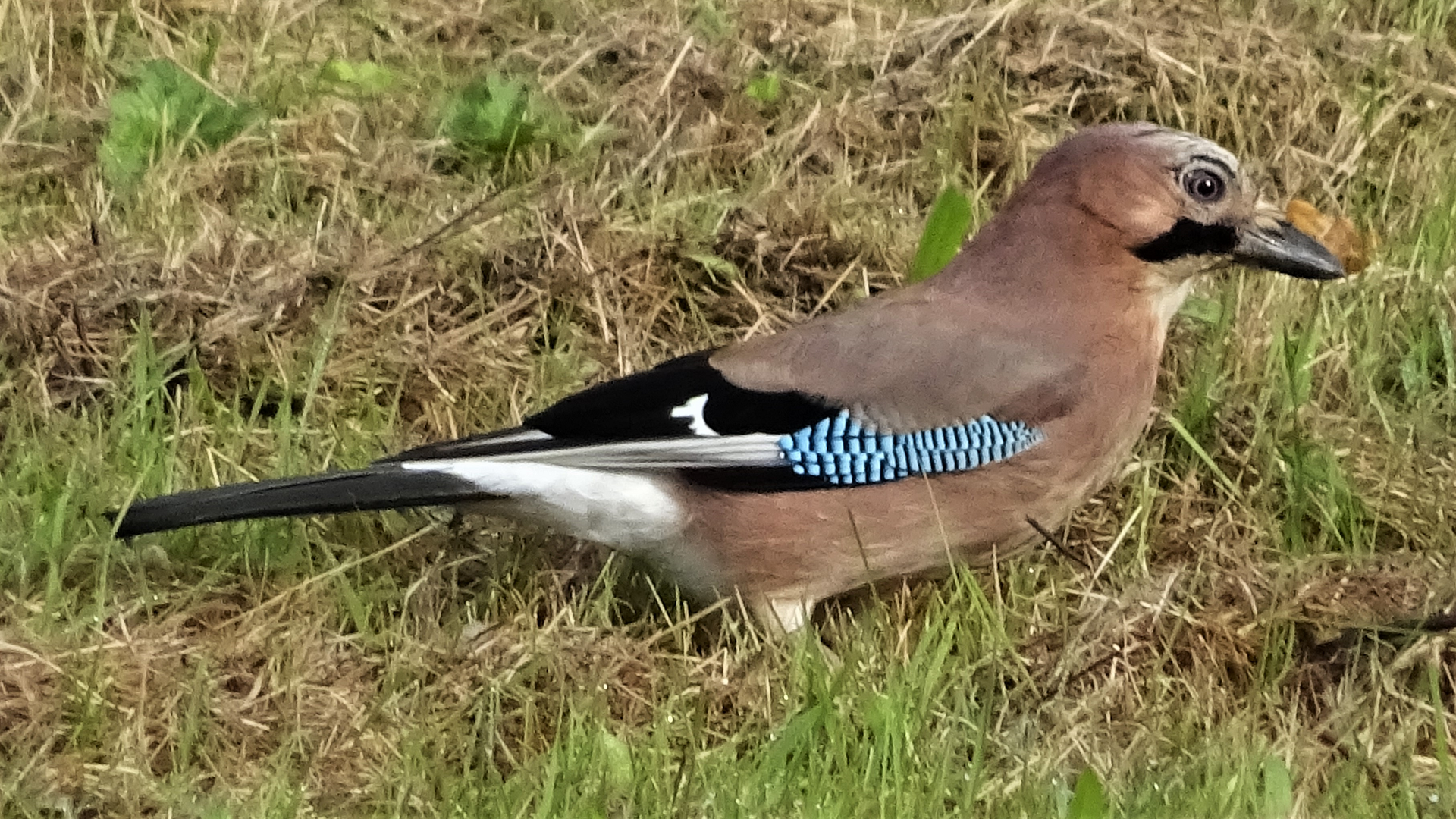
Slide title
Jay Garrulus glandarius
©Raymond Small TQ4792 28/10/2017
Button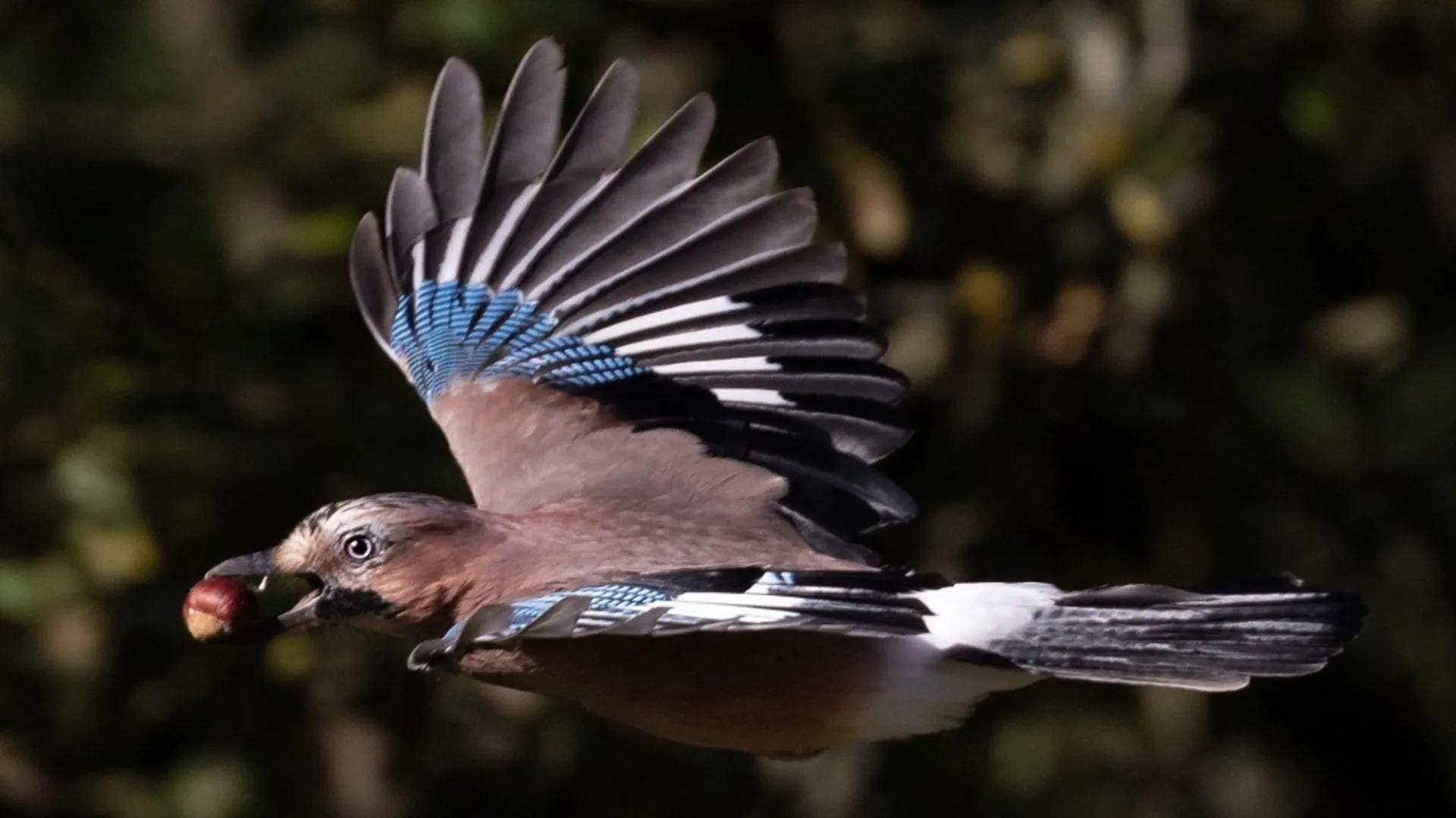
Slide title
Jay Garrulus glandarius
©Radovan Zierik TQ4792 27/09/2018
Button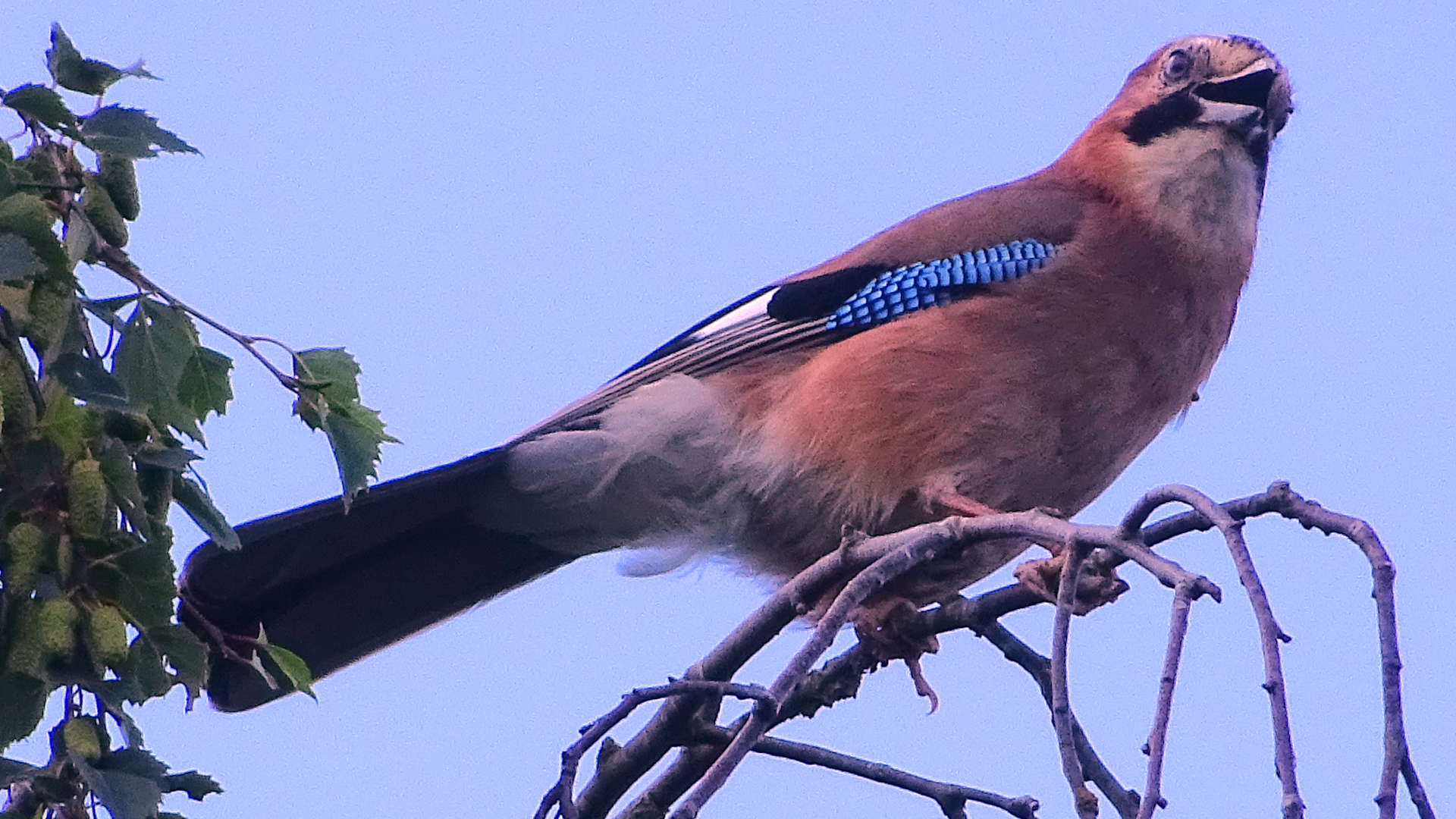
Slide title
Jay Garrulus glandarius
©Raymond Small TQ4792 05/06/2024
Button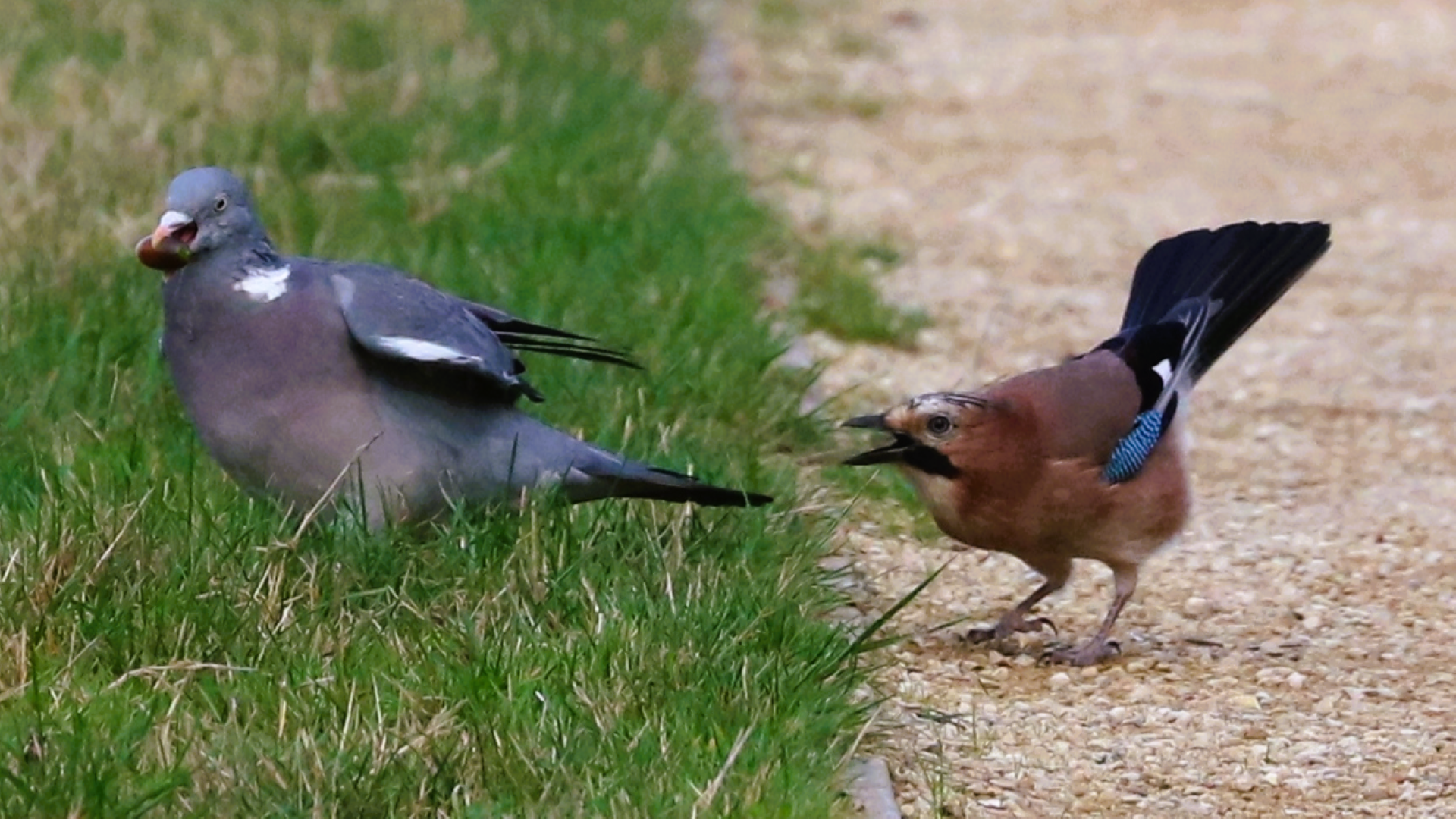
Slide title
Jay Garrulus glandarius
©Michael Trump TQ4792 03/10/2024
Button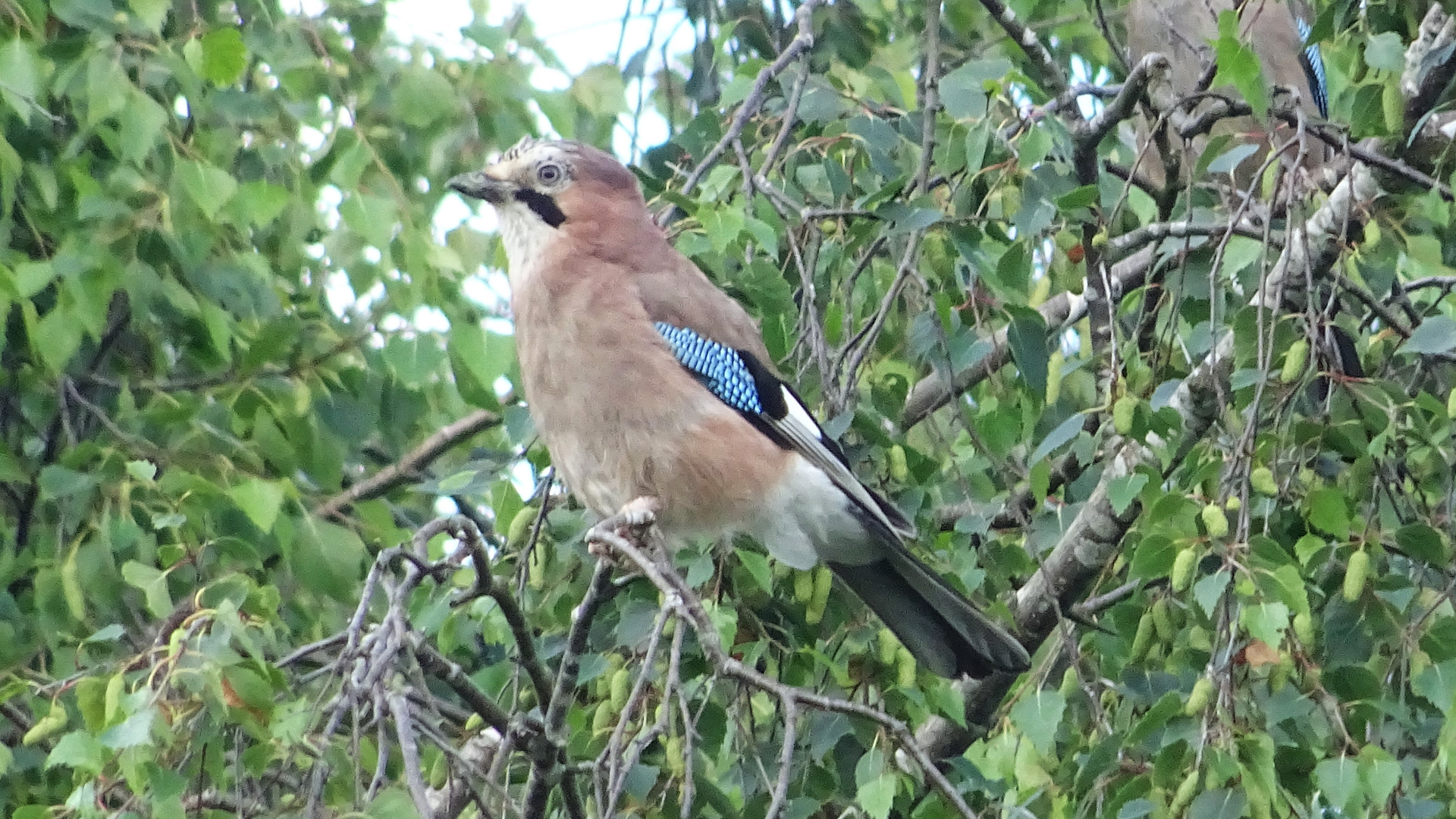
Slide title
Jay Garrulus glandarius
©Raymond Small TQ4792 05/06/2024
Button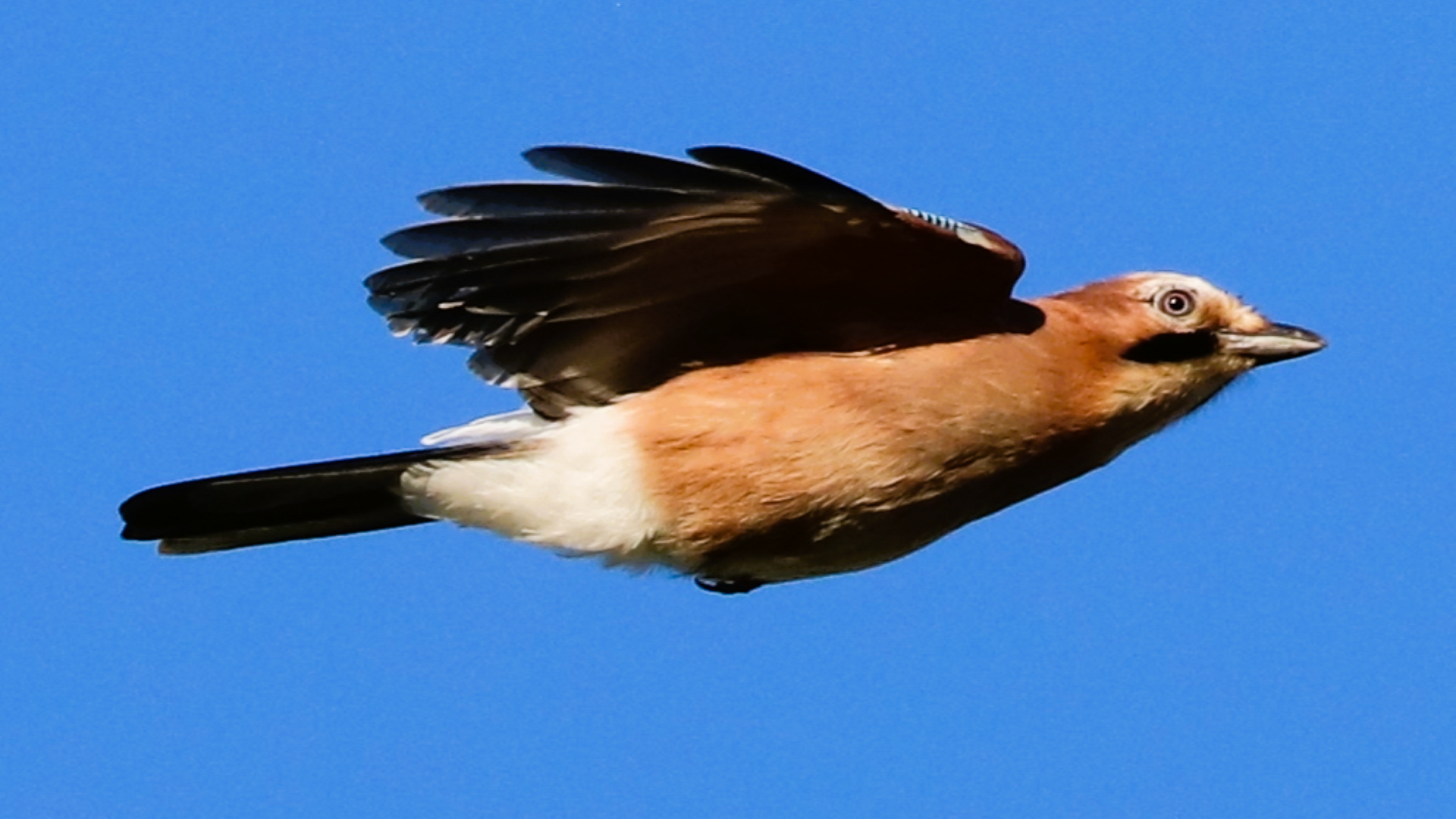
Slide title
Jay Garrulus glandarius
©Michael Trump TQ4792 03/10/2024
Button
Jays
are unlike other corvids because they are colourful and rather shy birds often staying under the cover of trees in wooded areas. This may be because they were hunted by the Victorians to provide feathers for ladies' hats. During autumn they bury acorns and chestnuts ready for collection when food is scarce. They sometimes forget where their caches have been hidden which assists trees in spreading to other areas. The collective noun for a group of Jays can be either a 'Scold' or 'Band'.
© hainaultforest.net. All rights reserved.